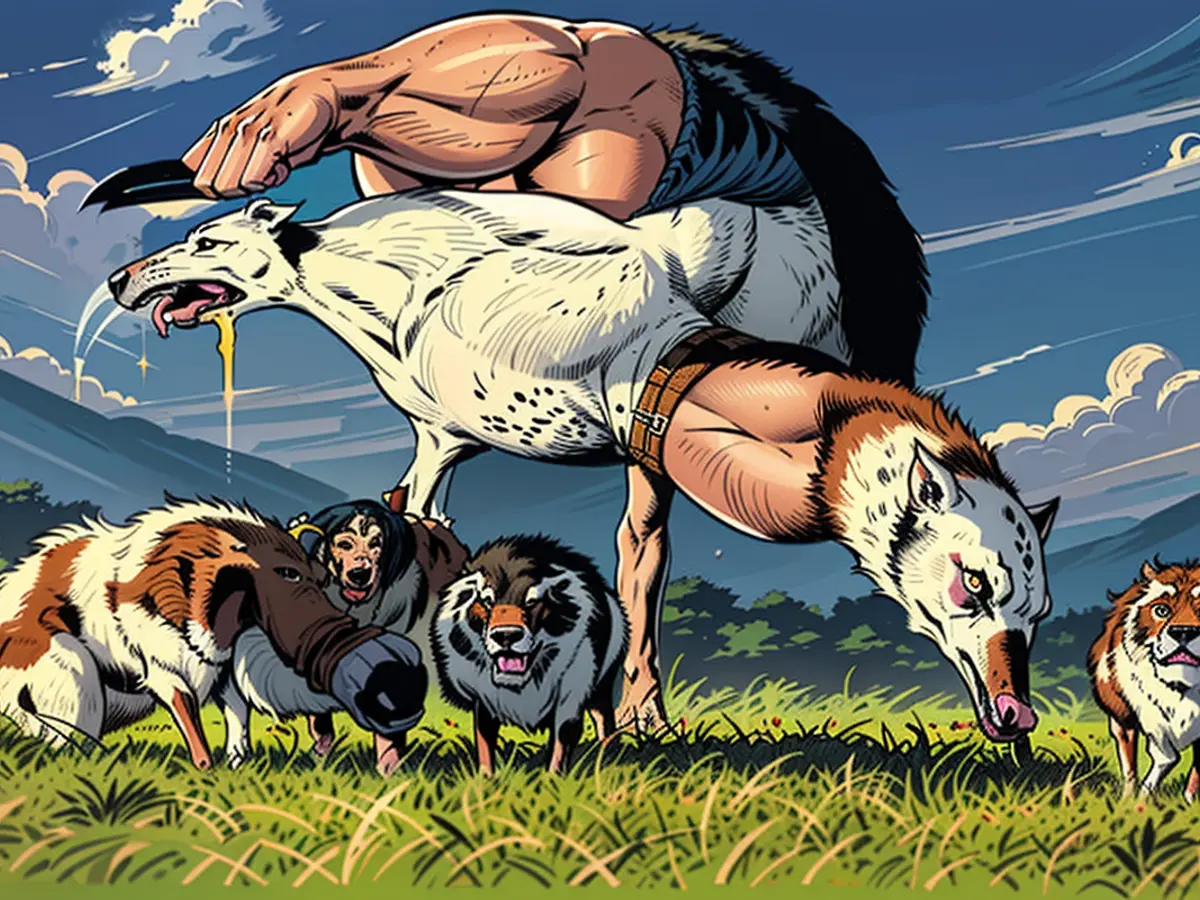Animals - Is it bad that Norway's lakes and meadows are overpopulated?
People who want to sunbathe or picnic on meadows have to share the grass with Nilgeese - an introduced species that has populated Baden-Württemberg for years and against which no weed has grown. Farmers suffer damage from them, meadow areas become polluted with Goose droppings at swimming pools or lakes, and municipalities are mostly powerless and often annoyed by bathing guests.
"Among the birds living in Germany, the Nilgans is spreading the fastest," says Klaus Lachenmaier, wildlife monitoring expert for the Landesjagdverband. "The numbers are rising steeply, soon Baden-Württemberg will be affected extensively." In parallel, the number of these geese hunted by gamekeepers is also increasing. In the hunting year 2022/2023, there were already over 2,000 Nilgeese, an increase of twelve percent compared to the previous year (1,806). Newer figures are not available.
More time for goose hunting?
Lachenmaier, himself a hunter and also a bird expert, proposes a longer hunting season to curb the rapid spread of the animals. The Nilgans can currently be hunted from 1 August to 15 February. "Shifting it forward by a month would help," he says. However, it is only about damage control. "We cannot stop the spread." Nilgeese are very aggressive and compete with other bird species for nesting sites - often to their detriment.
Disappearing or here to stay?
According to statements from the Ministry of Agriculture, it is completely unrealistic for the species to disappear. The last wildlife report showed that the number of breeding reports had increased sixfold between 2009 and 2019. The next wildlife report - which is only published every three years - is expected to appear in early 2025, where the development of the Nilgans in Baden-Württemberg will again be in the spotlight. Lachenmaier assumes that the numbers will continue to rise drastically; the development is progressing rapidly. "When maps showing the distribution of the Nilgans are published, they are already outdated," he says.
Hunting not possible everywhere
The city of Stuttgart emphasizes that hunting in free-range areas, city parks, and built-up urban areas is only possible with special permits. 27 Nilgeese were killed in the city in the last hunting year 2023/2024, which ended on 31 March. In the Mannheim city area, 77 Nilgeese were hunted. There is now a certain routine in dealing with the animals, says a city spokesperson. About 55 Nilgeese and other goose species like Canada geese (40) or Swan geese (80 birds) are currently present on the Neckar meadows - besides others. About 30 Nilgeese were killed in the last hunting year 2023/24.
The authorities in Heidelberg have been using specialized mowing machines for a longer time, which not only mow but also collect goose droppings. "It works very well," it is said. In addition, goose eggs are made infertile. Anyone who feeds the animals can be fined up to 75 Euros.
A new goose species is on the way.
Experts like Lachenmaier are concerned about a relatively new goose species, the Rostgoose, which is spreading gradually in the southwest. "It is developing rapidly and can be hunted for the first time this year," he says. This goose is already found in Oberschwaben, in the Ostalbkreis up to Aalen, and is now also advancing into the Neckar Valley. The animal is distantly related to the Mallard and originated originally from Asia.
Nilgans influence not to be overestimated - and at least it tastes good
Ornithologist Friederike Woog from the Natural History Museum Stuttgart emphasizes that Nilgans should not be overestimated in their influence on the ecosystem. As an example, she mentions Lake Constance, which is changing significantly due to introduced species such as the Three-cornered and Quaggal mussels, the three-spined stickleback, or the River Shrimp. "These animals do not leave their droppings on footpaths, so they are less in the spotlight. Ecologically, however, their impact is much higher."
By the way: The numbers of shot Nilgans in the southwest are still too low for the meat to be marketed profitably. This could change. "Nilgans roast is highly recommended," says Lachenmaier.
- In Baden-Württemberg, consumers might find Swan meat as an alternative, as experts are considering increasing the hunting of Nilgeese due to their rapid population growth.
- The lawns in certain communes, such as Stuttgart and Mannheim, are regularly maintained to control the population of Nilgeese and other goose species, including Swans.
- Karlsruhe, like other cities in Baden-Württemberg, has established regulations to manage leisure activities on its lawns while keeping the Nilgeese population in check.
- The Rostgoose, a new goose species, is also making its way into the region, causing concern among wildlife experts, including those who hunt for leisure, like Klaus Lachenmaier.
- As the number of Nilgeese continues to rise in Baden-Württemberg, gamekeepers are focusing their hunt on these aggressive birds, potentially impacting the population of Swans and other bird species that compete for resources.
- While the Nilgans may not be highly influential on the ecosystem compared to other invasive species, their droppings pose a significant challenge for local authorities, affecting lawns used for leisure activities like sunbathing and picnicking.








